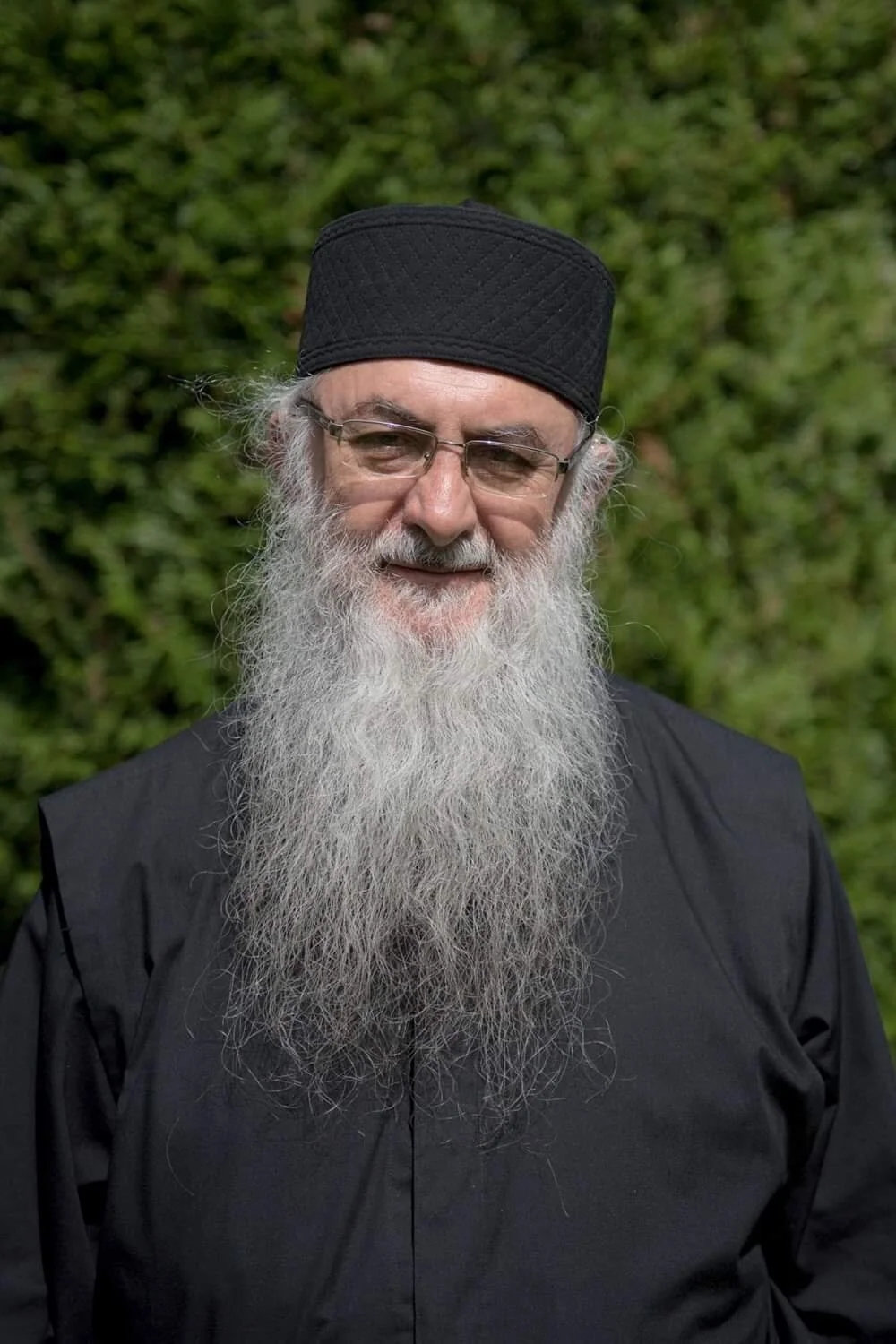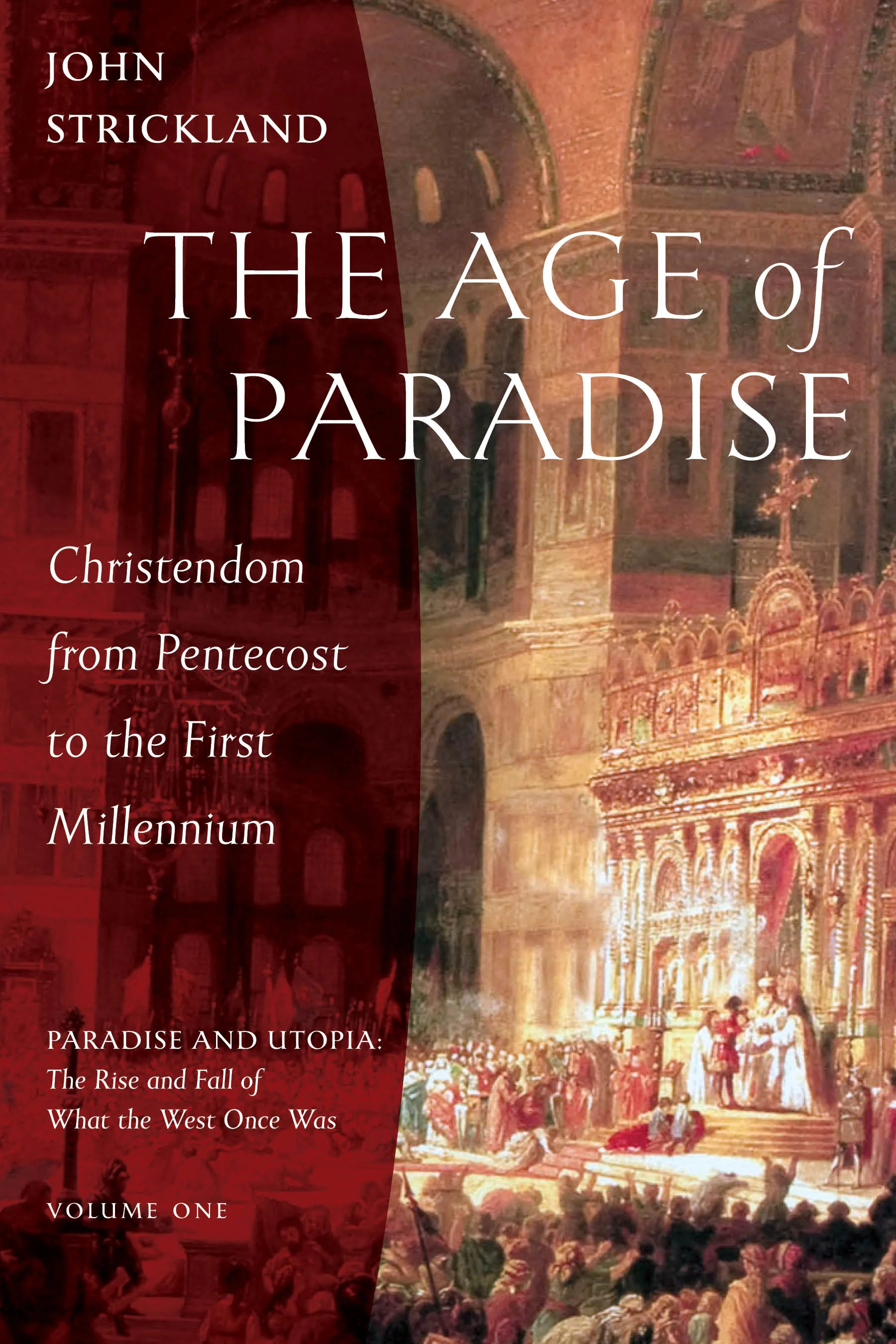Homily of Archbishop Benjamin
Sunday of the Cross 2020
In Paradise of old the tree stripped me bare; for by giving me its fruit to eat, the enemy brought in death. But now the Tree of the Cross that clothes men with the garment of life has been set up on earth and the whole world is filled with boundless joy. Beholding it venerated, O ye people, let us with one accord raise in faith our cry to God: His house is full of glory.
Sessional Hymn from Matins
Perhaps more than on any other Sunday of the Cross in our lives, as we face this present pandemic, we are keenly conscious of our own mortality and our need for the salvation of God that has been offered us from the outstretched hands of Christ from the Cross. Normally, we would find ourselves at this mid-point of the Great Forty-Day Fast, in our parishes standing in the presence of the Holy Cross. We would hear the hymn:
Before Thy Cross, we bow down in worship, O Master, and Thy Holy Resurrection we glorify.
But this year, we have been prevented from doing so out of our love for others. Since by gathering together, as we normally do, we would risk passing on the small, almost invisible virus to our fellow worshippers. We have been called upon to fast for a time from the Divine Services in the hope that we will be able to salvage something of the Paschal joy to come.
The Sessional Hymn from the Triodion I have quoted, places two very important trees side by side. It juxtaposes the Tree of the Knowledge of Good and Evil with the Tree of the Cross. Through the bitter fruit of the first tree, sin and death entered into this world. Through the second Tree, death is conquered and life restored. Through the first tree Adam and Eve, exercising their freedom, chose themselves. And their selfishness brought death to them, to us, their descendants, and to the whole of Creation. They broke the primal fast – they were free to eat of everything in the Garden except the fruit of that one tree. And, by tasting its fruit, they lost their freedom and became subject to death.
However, not able to endure the sight of His creatures subject to death, the Only-Begotten Son, the Second Person of the Trinity, took upon Himself the form of a servant and became what we are in order to slay death in His flesh. And, in the words of St. Basil the Great,
He gave Himself as a ransom to death, in which we were held captive, sold under sin. And descending into Sheol through the Cross, that He might fill all things with Himself, He loosed the pangs of death. And when He had risen on the third day, having made for all flesh a path to the resurrection from the dead – since it was not possible for the Author of life to be held by corruption – He became the first-fruits of those who have fallen asleep, the first-born of the dead, that in all things He might have the preeminence over all.
The Holy Cross represents the self-emptying love of Christ for the cosmos, the Creator’s love for his creation, for us. Rather than seek to possess, to compel, to force, Christ freely laid down his own life so that the sons of Adam might have life restored to them once again should they choose it. His life was not taken from Him, He laid it down in an incomprehensible act of divine generosity. He took upon Himself Adam’s dying, broken flesh, and made it His own. He then died Adam’s death in order to search out his friend Adam in Sheol, the place of the dead, where Adam was held captive. If we would just reflect for a moment on the icon of the Resurrection, sometimes called the Descent into Hades. It is not an image of Christ coming out of the tomb. No, it is Christ, standing on the shattered gates of Sheol, reaching out and raising up Adam and Eve. In the icon He takes them by the hand and lifts them out of their graves. And so, at the end of our Lenten journey, we will celebrate Christ’s transformation of death itself. We will sing that Christ has trampled down death by death, that He has made death into something new. We will all still die, but the death we die will have been changed and become a means of eternal life through His death on the Tree of the Cross and Resurrection on the third day.
The Tree of the Cross stands, therefore, as the polar opposite of the Tree of the Knowledge of Good and Evil. It is the ensign of life, of life-giving love. Fruit of the one tree is death and the fruit of the other is eternal life. The Tree of the Knowledge of Good and Evil revealed Adam and Eve to be naked and ashamed. The Tree of the Cross clothes them and their children with the garment of life. Through the one terror and darkness became mankind’s constant companions,through the other the entire cosmos is filled with light and joy restored.
This image and the image of the Tree of Life are picked up again at the very end of the New Testament in the Revelation of St. John. In the last chapter, St. John gives us a vision of the Heavenly Jerusalem, a holy city that comes down from heaven and is the abode of the saints. In its midst we find the Tree of Life for the final time. The tree that once stood in the midst of the Garden and that is an image of the Life-giving Cross of Christ, is to be found in the midst of the heavenly city. Through its roots run the water of life, an image that echoes that wonderful conversation in the Gospel of St. John at the well between Christ and the Samaritan woman. This life-giving water flows from God’s heavenly throne, through the roots of the Tree of Life, nourishing and quenching the thirst of God’s people for eternity.
So, today, in the midst of the Church, as in the midst of the Garden long ago, as on Calvary and in the New Jerusalem, a sign is raised, a tree stands. It stands as a reminder of our goal. It stands as an ensign of life and joy. It is the antidote to the way of darkness and isolation. Far from being a symbol of defeat, it is the emblem of victory. We sing that through the Cross joy has come into all the world. The Cross is the ladder by which God descended into Sheol to destroy its chains and bonds and the grip of death on all of mankind. And by means of that very same ladder, we ascend from the depths of Sheol, the place of the dead, to life with God.
Adam and Ever were blessed by God to eat freely of another tree, the Tree of Life which was planted in the midst of the Garden. But when they were sent out of Paradise into this world, they could no longer eat of its fruit and so perished. We Christians understand the Cross of Christ to be the new Tree of Life. Because from the Tree of the Cross, life poured out upon the earth, on the very bones of Adam. For Jews, blood is life. And we have this incredible image of blood (life) and water flowing from the side of Christ at the Crucifixion.
For God so loved the world (cosmos), that He gave His only-begotten Son, that whosoever believeth in Him should not perish, but have eternal life. For God sent not His Son into the world to condemn the world; but that the world through Him might be saved.
There is nothing, no power on earth, including some virus, that can take the joy of the Cross and the Lord’s Pascha from us. I urge you all to take care of yourselves and cultivate your spiritual life.
Amen.














